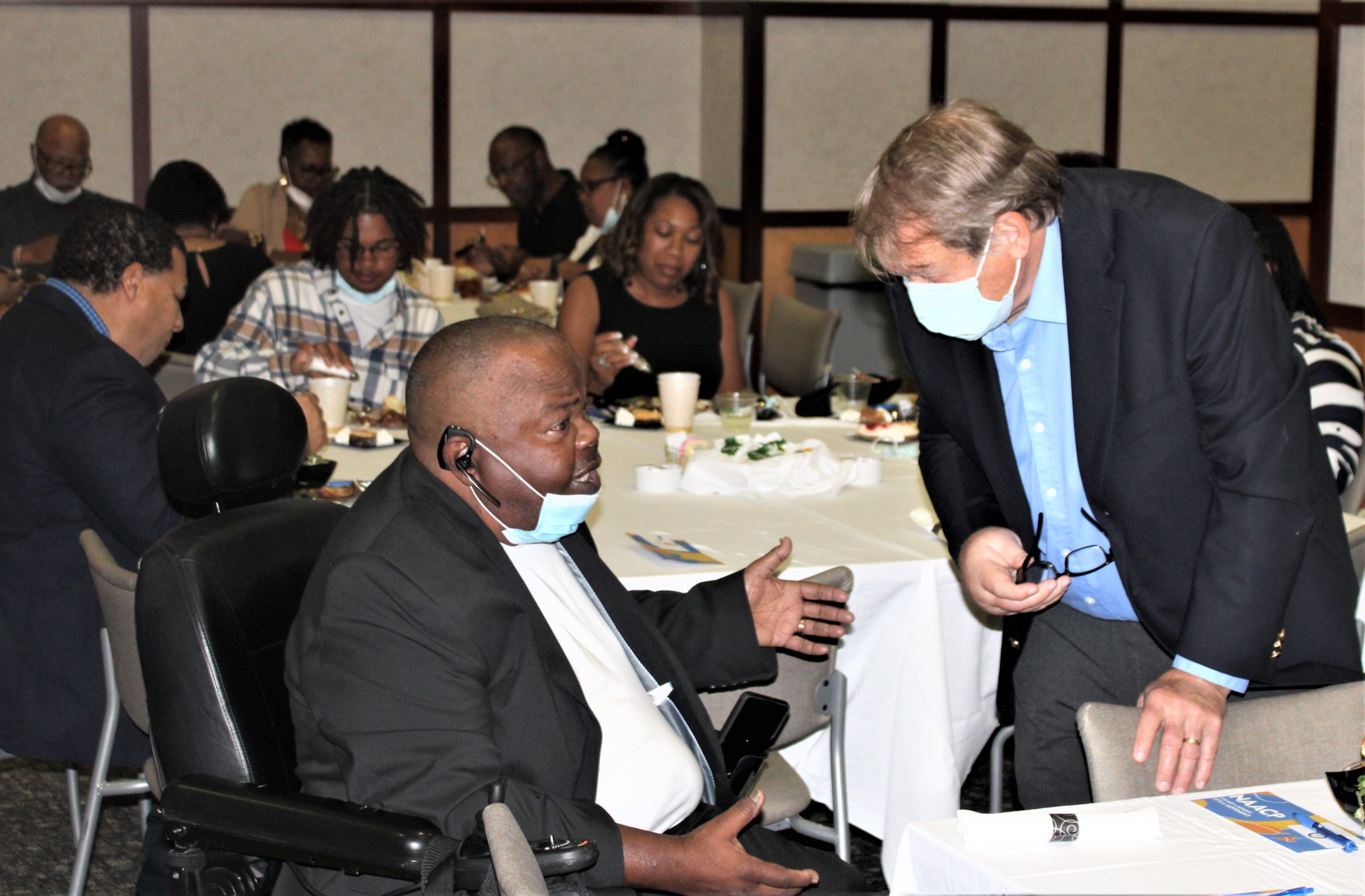Teaching history includes even the parts that make people uncomfortable, says speaker
Teaching history – even the uncomfortable parts — is vital, said the speaker at Saturday’s NAACP Unity Banquet. Civil rights attorney Henderson Hill asked, “How can we make good policy without knowing the facts?”
Hill has spent decades as a public defender and campaigner against the death penalty. He told about 140 guests at the dinner that teaching what is called critical race theory is about getting a complete understanding of American racial history and how it affects society.
He focused on the 13th Amendment to the Constitution, which is widely understood to have ended slavery in the United States. He ended his talk by saying it actually led to a new form of enslavement.
He asked the audience to read the amendment as he projected it in front of them at Lingle Hall in Reid Health.
“Neither slavery nor involuntary servitude, except as a punishment for crime whereof the party shall have been duly convicted, shall exist within the United States, or any place subject to their jurisdiction.”
Hill pointed out the exception clause, which allows involuntary servitude as a punishment for crime. Passed shortly after the Civil War ended, the amendment, Hill said, is responsible for the creation of the American penal system, in which Black people are imprisoned at a higher rate than white.
Hill used an example from North Carolina, where he lives and works. He said that 10 years before the Civil War, North Carolina had considered building its first state prison. The proposal failed, he said, because it might have meant putting white people in prison.
After the 13th Amendment passed in 1865, the state built a prison by 1868.
In the same era, North Carolina was among states that passed “Black Codes,” restrictive laws designed to limit the freedom of African Americans and ensure their availability as a cheap labor force. States criminalized Blacks for using public spaces, men who were out of work, or who were not working at a job whites recognized.
This resulted in Black people being sent to prison in higher numbers. There, they were put into chain gangs, which were forced labor crews who built the roads for no pay.
“The North Carolina Department of Transportation grew out of the Department of Corrections,” he said.
Beyond that, conviction for minor crimes has helped keep Black people out of the criminal justice system because they aren’t allowed to sit on juries. White lawyers also routinely disqualify many more Black jurors than white, he said.
Hill joined the ACLU as senior counsel in its Capital Punishment Project at Durham, North Carolina, after serving decades as a public defender and with the NC Death Penalty Resource Center. A graduate of Harvard Law School, he is the founding director of the 8th Amendment Project, a national campaign to abolish the death penalty, and is co-director of RedressNC, which seeks to unwind extreme prison sentences.
Hill spoke of the criminal justice system as a “criminal punishment system.” He said there are three ways of structuring it: punitive justice, restorative justice and transformative justice.
In punitive justice, people are convicted of crimes and punished, quickly.
Restorative justice, which he supports, brings victims and families of offenders together to help both sides understand the other.
Transformative justice, he said, addresses the societal problems that lead to crime. “I have this unified theory of justice: You’re not going to get there unless you deal with” issues such as housing insecurity, food insecurity, transportation and barriers to gainful employment.
In his talk, Hill gave many other examples of historical policies affecting personal rights, especially for Black people.
He told the group that the way to make change is through individual action. “We can’t focus on what divides us. We’ve gotta focus on getting going with individual actions sometimes, to make the world around us a little better.”

